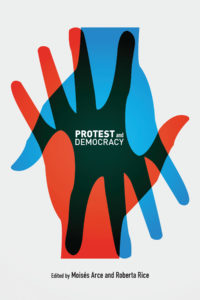 Lebanese security forces fired tear gas, rubber bullets and water cannons Sunday to disperse hundreds of protesters for a second straight day, ending what started as a peaceful rally in defiance of the toughest crackdown on anti-government demonstrations in two months, The Associated Press reports (HT:FDD).
Lebanese security forces fired tear gas, rubber bullets and water cannons Sunday to disperse hundreds of protesters for a second straight day, ending what started as a peaceful rally in defiance of the toughest crackdown on anti-government demonstrations in two months, The Associated Press reports (HT:FDD).
Lebanon’s protests, which began on October 17, have focused on the need to change the country’s power-sharing system and reverse the rapid deterioration in the quality of daily life. But something more profound is taking place. We are witnessing a social transformation, a revolution in the norms underpinning Lebanese society, Carnegie analyst Maha Yahya writes for Diwan:
Lawyers, student organizations, labor unions, university professors, some political parties, and civil society organizations have been organizing these discussions daily across the different spaces of protest. They are tackling topics as varied as electoral laws, the role of media, economic options for Lebanon, the public good and shared commons, how to deal with trauma after the civil war, and what a new Lebanon might possibly look like.
The protests signal a grassroots rebirth of the ideal of Lebanon as a modern and inclusive national project, analyst Hussein Ibish tells Janelle Chalouhi’s THE UNHEARD podcast.
Last week, Iraqi protesters from the southern provinces planned to gather in the holy city of Karbala to march to Baghdad’s Tahrir Square. Although they were prevented from entering Karbala by tribal actors affiliated with the state, their decision to gather in Karbala is steeped in Shiite symbolism, notes Marsin Alshamary, @MarsinRA a pre-doctoral research fellow with the Middle East Initiative at the Belfer Center for Science and International Affairs in the Harvard Kennedy School. Beyond the fact that the protesters are predominantly Shiite, there are five ways that Shi’ism affects the ongoing protests, she writes for the Post’s Monkey Cage blog.